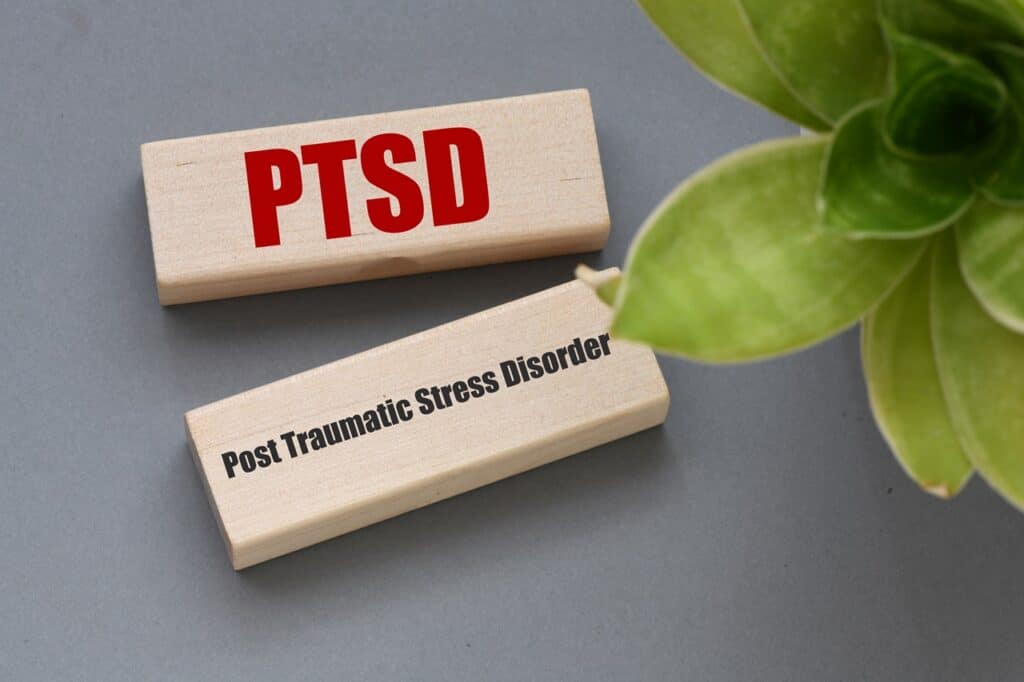Post-Traumatic Stress After a Cycling Accident: Signs & Solutions
Cycling accidents can have serious physical and psychological consequences. While injuries like fractures and road rash are immediately visible, the emotional trauma of an accident often lingers long after the physical wounds have healed. Many cyclists experience post-traumatic stress disorder (PTSD) following a crash, affecting their confidence, daily routines, and even their ability to ride again. Understanding the signs and knowing how to address them can make a significant difference in the recovery process.

Recognizing PTSD After a Cycling Accident
PTSD is a psychological response to a traumatic event, such as a serious bike accident. Cyclists may experience emotional distress long after the accident, impacting their ability to get back on the road. Common symptoms include:
1. Intrusive Thoughts & Flashbacks
Many accident survivors replay the event repeatedly in their minds. Flashbacks, nightmares, and intrusive thoughts can be distressing, making it hard to focus on daily activities.
2. Avoidance Behavior
Cyclists who experience PTSD often avoid the place where the crash happened or hesitate to ride their bike again. They may find excuses to avoid cycling altogether, even if it was once a major part of their lifestyle.
3. Heightened Anxiety & Hypervigilance
Feeling on edge, being overly alert to potential dangers, or having an exaggerated fear of vehicles can result in a constant state of anxiety. Cyclists may feel unsafe riding, even in low-risk areas.
4. Mood Swings & Irritability
Emotional changes like depression, irritability, and feelings of hopelessness can be common. Cyclists may struggle to find enjoyment in riding or other activities they previously loved.
5. Sleep Disturbances & Concentration Issues
Difficulty sleeping, frequent nightmares, and trouble concentrating at work or in social settings are common PTSD symptoms. Cyclists may also experience a lack of motivation.
Solutions to Overcome Post-Traumatic Stress After a Cycling Crash
If you or someone you know is struggling with PTSD after a cycling accident, there are effective ways to regain confidence and get back on the road.
1. Seek Professional Counseling
A licensed therapist specializing in trauma recovery can help you process the accident and develop coping strategies. Cognitive-behavioral therapy (CBT) and exposure therapy are proven methods to help accident survivors overcome fear and anxiety.
2. Gradual Exposure to Cycling Again
Start slow. Begin by walking your bike in a safe environment before progressing to short rides in low-traffic areas. Slowly increasing exposure can help rebuild confidence.
3. Join a Cycling Support Group
Talking to other cyclists who have experienced similar accidents can be reassuring. Many cycling clubs and online communities offer emotional support and encouragement to help riders regain their confidence.
4. Practice Mindfulness & Relaxation Techniques
Breathing exercises, meditation, and yoga can help calm the nervous system, reducing anxiety and stress associated with PTSD. These techniques improve focus and emotional resilience.
5. Upgrade Your Safety Gear
Feeling safer can reduce anxiety. Investing in high-visibility clothing, a well-fitted helmet, and advanced safety lights can boost confidence while riding. Consider a bike with better stability and upgraded brakes for additional security.
6. Take Defensive Cycling Courses
Enrolling in a defensive cycling course can help reinforce safe riding habits and teach cyclists how to react in dangerous situations. Knowledge is power, and feeling more in control can significantly reduce post-accident anxiety.
7. Legal Support for Peace of Mind
Sometimes, PTSD stems from unresolved legal and financial stress due to the accident. A bike accident attorney can handle insurance claims, negotiate settlements, and ensure you receive fair compensation for your injuries, lost income, and emotional distress.
Moving Forward After a Cycling Accident
Recovering from PTSD takes time, and every cyclist’s journey is different. The key is to acknowledge the trauma, seek support, and take proactive steps toward recovery. With the right strategies and guidance, you can regain your confidence and return to cycling with peace of mind.If you or a loved one is struggling with PTSD after a cycling accident, Cyclist at Law is here to help. As an attorney and avid cyclist, I understand the emotional and legal challenges you may be facing. Contact me today to discuss your case and get the support you need.
